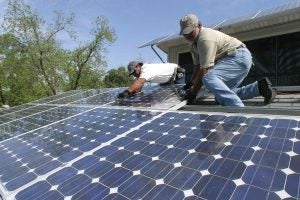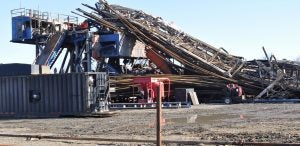 By Michael Colvin and Lauren Navarro
By Michael Colvin and Lauren Navarro
A new bill making its way through the California Legislature has the potential to help accelerate the much-needed transition to electric vehicles.
The law, Senate Bill 372, would create state programs that help owners of medium- and heavy-duty trucks and buses pay for the costs of replacing their diesel-fueled fleets with cleaner, zero-emissions alternatives.
Medium- and heavy-duty trucks create massive amounts of air pollution. This pollution deteriorates air quality and can exacerbate serious health problems for people who suffer from asthma and other respiratory conditions. The pollution is particularly bad along shipping routes and near warehouses, many of which are located in and around low-income communities. So replacing these vehicles with cleaner, zero-polluting versions will immediately improve outcomes for these vulnerable populations.














